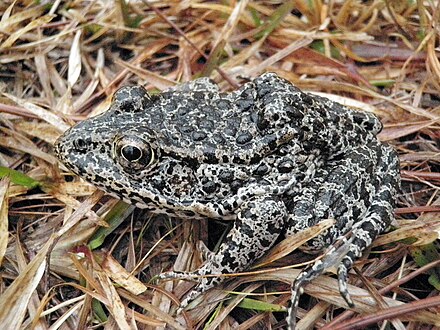

 (I am stealing that rfk line)
(I am stealing that rfk line)
DM ME FOR BUG TALES


 (I am stealing that rfk line)
(I am stealing that rfk line)


I have very few resources to offer anyone in need, as it’s really only by my basic unfair privileges as a cis white man that I even have a place to sleep, but I’m just trying to make it clear to the people I know that I have the space to house them/feed them if they are in crisis. Without much else to support them with it feels like the best I can do.


Really feels like I picked a bad time to be interested in amphibians sometimes 
Definitely jealous of getting to work with condors, sounds awesome.


I visited a lab where some of the last remaining dusky gopher frogs are cared for.

(reminder that frogs may be in what is considered the sixth mass extinction ever on earth)


It’s a good article that showcases the way AAA games are basically hollow. They wear a lot of art, incredibly elaborate, expensive, art, but none of it comes together to make the experience it promises. Everything is built in separate pieces and stuck together later, and its boring gameplay that shows no interest in being art of its own is the glue. I remember Yahtzee did a video about the first Destiny that made this same point, about how the environmental art in a few areas was fascinating and clearly full of effort, but the gameplay was a slog that lacked the same ambition.


The entire album Symbol by Susumu Yokota might hit the right nerve, though it’s heavier on the dreamlike side and doesn’t have lyrics. I use it for driving, writing, anything that needs a kind of hypnotized but functional state of mind.


Look this is true but AT LEAST it’s how politics is supposed to work, it’s not about choosing the most ethically and morally consistent person, it’s about having a person in the seat who will vote the way their constituents want, no more
Hoooooly shit I forgot about the bedbug meltdown
HE GOOGLED “JEWS AS BEDBUGS” what a classic
Yeah I suppose the OP says “opinion” but this here fact has put me in the situation in the picture more than once
Bugs are not just bugs
Bugs are a subcategory of insects and you are wrong almost every time you call any old insect a bug


I just responded to a pretty similar position below.
It is silly to conflate opposition to the status quo with intellectualism. Those visionaries whose ideas led to paradigm shifts were still building upon previous consensus. Sometimes being correct puts you at odds with the group, but so does being COMPLETELY WRONG.
Sometimes


If I was in college still there’s a part of me that would have wanted to make it my life’s work to reach the same level of “legitimacy” as PeePee Jordanson so that I could spend all my time sabotaging his reputation as publicly as possible


This is an uncomfortable reality but the more recent examples of the sciences and humanities being considered progressive overall gives me hope.


Yeah probably. I don’t like the idea of having faith in science of course, considering that science is done by people, and people aren’t infallible. But it’s the best tool we have for preserving and interacting with past ideas and breakthroughs. I suppose the thing I’d have to have faith in is humanity’s drive to understand a “truth” that holds up to scrutiny, instead of the characterization some have of human beings as creatures that wish only to satisfy existential terror incuriously.


I get what you are saying, but I don’t think anti-intellectualism refers to people being against people who happen to have “intellect.” And also, this claim about being a true intellectual seems like an impossible standard. It’s possible to rigorously scrutinize an assumption drawn from smart types, sure, but nobody has the time to do that for everything that makes up their understanding of reality.
I could tell you right now that sidewinder rattlesnakes don’t use their heat-sensitive facial pits to select thermally ideal ambush sites, they just use their eyes to pick a site that looks good. You could not deduce this without experimentation. (I was part of a study that tested it.)
Now, you could trust that I’m telling you the closest thing to the truth that is known in the world of rattlesnakes, but let’s say you want to be intellectual by your definition and go know it without just taking my (admittedly qualified) word for it. You could go get a herpetology degree, go convince a grad student that it would be worth challenging our conclusion, and spend another three months like we did out in the desert catching snakes and running experiments with thermal cameras.
You probably don’t want to do that, because you probably don’t have the highly specific interest in snakes that we had, and so it would feel like a waste of your time. In the end, I think you’ll probably admit that I know more about this snake topic than you, you’ll accept my conclusion, and go around understanding it without having personally studied or observed it, and that’s a good thing because it will free you up to go figure something out that fits into your interests and you can share your findings with me in turn.


It frustrated me, I’ve been pretty depressed in the past and I felt like I detected all the same thought patterns in it. Not a badly written book but I didn’t enjoy what felt like a book written as a sort of self-flagellation


Thanks, I’m already thinking of ways I am off the mark though, like how things like race science and eugenics have been the “academic” position in the past.
I think properly working the academic consensus into your mind involves also understanding that it’s the product of people. It’s not that different from having some trust in institutions outside of academia too. There were people in the sciences fighting bitterly against those trends, and in the long run their position became standard.


Anti-intellectualism comes alongside alienation from others. It has to. Being an intellectual is essentially saying “I trust the findings of academics and will adopt their consensus.” Nobody can learn about the whole span of the world, it’s too much information. But when you are convinced that collaboration is weakness and compromise is failure, you have to keep the world in your head, and the only way to do that is to maintain a really simplified internal diorama from which your “truth” is derived.


I got to use a thermal cam for research out in the desert for a summer photographing rattlesnake ambush sites, it was awesome.
(From what we could tell the snakes in fact did not use thermal cues for their ambush sites, just their eyes. But I got to play with a thermal cam)